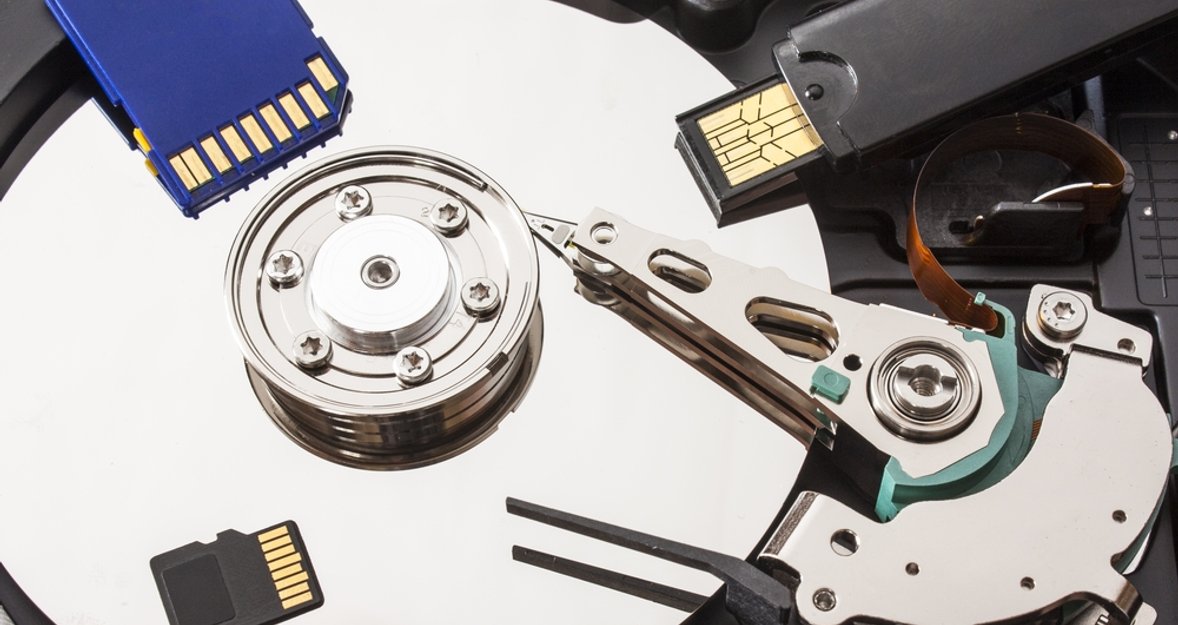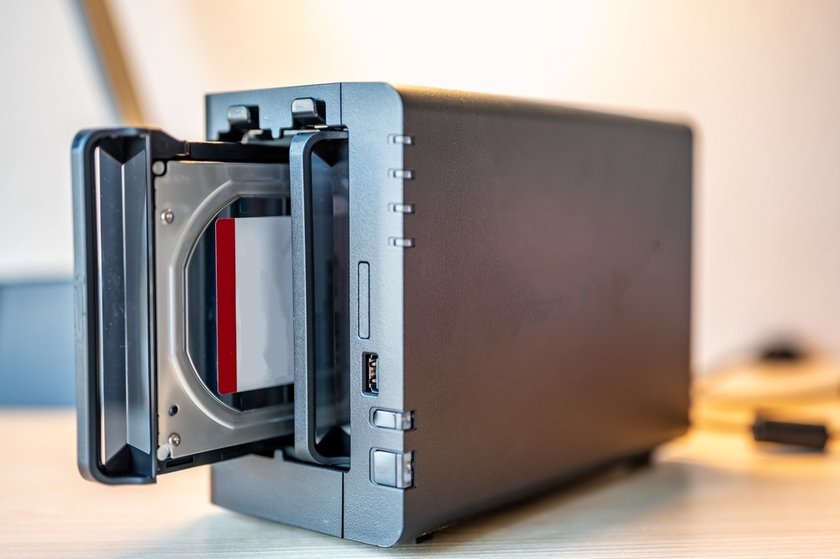Best Ways To Back Up Photos: Exploring Diverse Options
March 12, 2024

Discover the best strategies for safeguarding your digital memories in our post! Dive into the depths of cloud storage, external drives, and more to ensure your photos remain safe, accessible, and preserved!
Photos capture our world, frame by frame, preserving moments that, once gone, are lost to time. Yet, the digital realm, where these memories reside, is as fragile as it is vast. A glitch, a misplaced device, or an unforeseen event can erase what we hold dear. This raises a critical question: where to backup photos?
While many turn to cloud storage for its convenience and accessibility, it's just the tip of the iceberg in photo backup options. This post ventures into the depth of the alternatives, from the tangible security of external drives to the hidden nooks brimming with potential. It’s a guide for anyone keen to navigate the complexities of safeguarding their photographic legacy.
Let's dive in and discover the perfect backup solution for you, making sure your photos are safe, accessible, and preserved!
Cloud Storage Solutions 
For saving photos, cloud storage stands out as a sleek and contemporary option! Picture a vault that's unseen yet accompanies you everywhere, from mountain peaks to your cozy apartment. Platforms such as Google Photos, iCloud, and Dropbox act as guardians of this vault, keeping your memories safely tucked away online.
Why Cloud Storage?
Think of cloud storage as a magic album that duplicates your photos and stores them safely away from the physical world. Unlike a CD or an external hard drive that sits on your shelf, cloud storage doesn't occupy any space in your home. It's an off-site haven that's immune to the disasters we fear—be it fire, flood, or a coffee spill on your laptop.
The convenience is unparalleled. Access your photos anytime, from any device, without rummaging through drawers for discs or hard drives. It's all there, a click away, as long as you're connected to the internet. And if your collection grows or shrinks, adjusting your storage space is as easy as a subscription tweak—no need for additional hardware.
But Here's the Catch
Relying on the cloud does mean putting your trust in a third party to guard your personal and, possibly, professional life. It's a bit like entrusting your house keys to a neighbor; you'll want to make sure they're reliable. And while cloud services work hard to keep your data secure, the internet dependency means your access is only as good as your connection. Slow upload speeds can be a hiccup, especially if you're trying to back up high-quality shots over a sluggish network.
For the photographers among us, it's worth noting that cloud storage might not store your photos in their highest glory due to space constraints, and it may skip over metadata—details like when and where the photo was taken. This could be a dealbreaker if those details are crucial to your work or memories.
In Summary
So, cloud storage is like a futuristic photo album, offering a blend of security, convenience, and accessibility that traditional methods can't match. It frees you from the physical limitations of hardware and the fear of loss due to physical damage. Yet, it requires a good internet connection, a degree of trust in your service provider, and a willingness to compromise on certain aspects like photo quality and metadata. For many, the trade-offs are worth the peace of mind and ease of access. As with any choice, it's about finding the balance that works best for you!
Exclusive Tools of Endless Possibilities in One AI Editor
EXPLORE NOW!External Storage Devices 
In this technological age, figuring out how to store digital photos safely can feel like a quest for the Holy Grail. External hard drives and SSDs (Solid State Drives) provide a reliable physical backup option for your photos, offering peace of mind that's straightforward and practical.
Why Choose External Storage?
Imagine having a personal vault for your photos that's accessible anytime, anywhere—no internet required. That's the beauty of external storage. It's private and portable, and with a one-time purchase, it's all yours, with no monthly fees attached. Whether you choose an HDD (Hard Disk Drive) with its vast storage capacity or an SSD known for its speed and durability, you're in control. Your photos remain safe from prying eyes, and even if the internet takes a day off, your memories don't.
The Benefits
Offline Access: Your photos are always within reach, regardless of your internet connection.
Privacy: What's stored on your device stays on your device.
Cost-Effective: Pay once, and it's yours—no hidden fees or recurring charges.
Portability: Take your photos with you wherever you go.
Considerations and Cautions
Yet, this personal vault requires care. External drives can be lost, stolen, or suffer physical damage, turning your photo haven into a memory graveyard. HDDs, with their moving parts, are vulnerable to shocks and vibrations, making them less ideal for the nomadic photographer. SSDs, while sturdier and faster, still carry a heftier price tag.
In Summary
External storage devices offer a straightforward, reliable method for storing digital photos, combining the benefits of privacy, control, and one-time investment with the practicality of offline access. Whether it's an HDD for its ample storage or an SSD for its resilience and speed, the choice offers a personalized solution to the digital photo storage dilemma. With careful handling and regular backups, your external drive can be a long-term guardian of your memories, keeping them safe for years to come.
Advanced yet easy-to-use photo editor
Get Luminar Neo NowAlternative Backup Options 
Beyond the realm of cloud storage and external drives lies a landscape dotted with hidden gems: NAS (Network-Attached Storage) systems, USB flash drives, and SD cards. Each offers unique advantages for those willing to explore alternative routes to safeguarding their digital memories.
NAS
Imagine a central hub in your home that not only stores all your photos but also streams them to any device on your network. That's the power of NAS. It's like having your private cloud, minus the subscription fees and with the bonus of complete control. NAS systems are perfect for both backing up your precious photos and serving as a media center, allowing you to access your memories on any connected device at home.
USB Flash Drives
While they may seem like a relic in the age of cloud and massive external drives, USB flash drives are still incredibly useful for photographers and memory keepers. Compact, easy to carry, and simple to use, they're perfect for transferring photos between devices or carrying a backup with you on the go. Though not ideal for storing an entire library, flash drives are excellent for keeping a select batch of important images handy.
SD Cards
For photographers, SD cards are more than just a medium to capture images; they're a decent backup option. Filling up a few SD cards with your precious shots gives you an extra backup, especially when you’re on the go. While they shouldn't be the sole repository of your digital memories due to the risk of loss or damage, SD cards are a great solution for emergency backup until you can transfer the files to permanent storage.
In Summary
The quest for the best way to store digital photos long-term isn't limited to the most popular or obvious choices. Exploring alternative backup options like NAS systems, USB flash drives, and SD cards can uncover versatile and practical solutions tailored to your specific needs. Whether you're looking for the convenience and control of a home network hub, the portability of a flash drive, or the immediacy of an SD card backup, these hidden gems offer valuable ways to protect and cherish your digital memories for years to come!
Enhancing Images with Luminar Neo
Luminar Neo is created for photographers aiming to refine their images with precision and simplicity. Its core is built on AI-driven tools, enhancing photo quality effortlessly. Among its features, the image depixelizer stands out, addressing the challenge of pixelation that can mar the clarity and detail of any photo, from landscapes to family gatherings.
This tool is especially useful in editing family photos, where capturing spontaneous moments might result in less-than-ideal lighting or focus. The depixelizer works to smooth out these imperfections, improving sharpness and visual appeal across various scenarios.
With Luminar Neo, the editing process becomes straightforward, allowing for a range of adjustments. Its user-friendly interface supports both basic color corrections and more intricate edits, ensuring the original photo's integrity and quality are enhanced. This makes Luminar Neo an indispensable tool for anyone looking to preserve and improve their family memories with long-term clarity and detail!
Wrapping Up
In exploring the best ways to store digital photos long term, we've covered ground from the vastness of cloud storage to the tangibility of external drives and even ventured into the lesser-trodden paths of NAS systems, USB flash drives, and SD cards. Each option serves a unique purpose, offering a balance of security, accessibility, and ease of use to fit different lifestyles and preferences.
For those intrigued by the convenience of the cloud, our dive into photo storage websites provides a comprehensive look at how to safeguard your memories with ease and flexibility. And if you're curious about managing your memories on Apple devices, our guide on how to view photos in iCloud will walk you through accessing your cherished moments anytime, anywhere.
As we conclude, remember that choosing the right backup solution is about aligning with your needs. Keep your photos secure!









